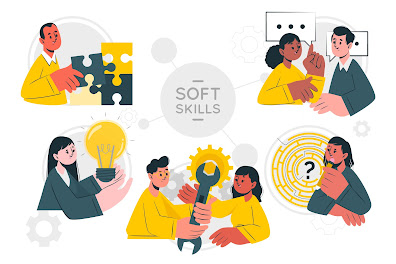Achieving Equity: Maintaining Fairness and Accuracy in Vocational Assessments (L3 CAVA)
Introduction
In the realm of vocational education, assessments serve as crucial tools for evaluating learners' knowledge and skills. However, ensuring fairness and accuracy in these assessments is paramount to maintaining integrity and upholding ethical practices. Drawing insights from the Level 3 Certificate in Assessing Vocational Achievement, let's explore tips for educators to uphold objectivity and ethical standards while assessing vocational competence.
Understanding the Importance of Fair Assessment
Fairness in assessment is more than just a buzzword—it's a fundamental principle that underpins the credibility and validity of vocational qualifications. A fair assessment ensures that learners are evaluated based on their actual competence rather than external factors such as bias or discrimination. This not only promotes equity but also instills confidence in the assessment process among learners and stakeholders.
Tip 1: Establish Clear Assessment Criteria
Clarity is key when it comes to assessment criteria. Educators must clearly outline the standards against which learners will be assessed, leaving no room for ambiguity or subjective interpretation. Clearly defined criteria help ensure consistency in assessment judgments and provide learners with a transparent understanding of what is expected of them.
Tip 2: Use Valid and Reliable Assessment Methods
Valid and reliable assessment methods are essential for accurately measuring learners' competence. Educators should select assessment tools and techniques that align with the learning outcomes and objectives of the vocational qualification. Additionally, assessments should be standardized to minimize variations in scoring and ensure reliability across different assessors and contexts.
Tip 3: Mitigate Bias and Subjectivity
Bias can inadvertently influence assessment outcomes, leading to unfair and inaccurate results. Educators must actively mitigate bias by adopting strategies such as blind marking, where assessors are unaware of learners' identities, and using diverse assessment sources to gather evidence of competence. Training assessors to recognize and address their own biases is also crucial in ensuring fairness and objectivity.
Tip 4: Provide Constructive Feedback
Feedback is an integral part of the assessment process, offering learners valuable insights into their strengths and areas for improvement. Educators should provide timely and constructive feedback that is specific, actionable, and focused on supporting learners' development. Additionally, feedback should be delivered in a supportive and non-judgmental manner, fostering a positive learning environment.
Tip 5: Maintain Confidentiality and Data Protection
Confidentiality and data protection are paramount in vocational assessments, particularly when handling sensitive learner information. Educators must adhere to legal and ethical guidelines regarding the collection, storage, and sharing of assessment data. Maintaining confidentiality instills trust among learners and ensures their privacy rights are respected throughout the assessment process.
Tip 6: Promote Learner Engagement and Participation
Engaged learners are more likely to actively participate in the assessment process and demonstrate their true competence. Educators should foster a supportive and inclusive learning environment that encourages learners to take ownership of their learning journey. Providing opportunities for self-assessment, peer feedback, and reflection empowers learners to become active participants in the assessment process.
Tip 7: Seek Continuous Professional Development
Assessment practices evolve over time, influenced by changes in education policies, technologies, and pedagogical approaches. Educators must engage in continuous professional development to stay abreast of best practices and emerging trends in vocational assessment. Participating in training courses, workshops, and professional networks ensures that educators remain informed and equipped to deliver fair and accurate assessments.
Conclusion: Upholding Integrity in Vocational Assessment
In conclusion, maintaining fairness and accuracy in vocational assessments is essential for upholding the integrity of qualifications and promoting equity in education. By establishing clear criteria, using valid and reliable assessment methods, mitigating bias, providing constructive feedback, maintaining confidentiality, promoting learner engagement, and seeking continuous professional development, educators can ensure that assessments are conducted ethically and transparently. Ultimately, by adhering to these principles, vocational assessments become not only a measure of competence but also a catalyst for learner growth and success.
By implementing these insights from the Level 3 Certificate in Assessing Vocational Achievement, educators can play a pivotal role in shaping a fair and inclusive assessment culture in vocational education, benefiting learners, employers, and society as a whole.

.jpg)


Comments
Post a Comment